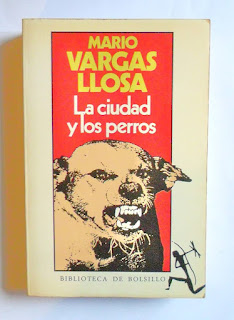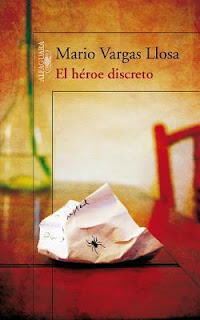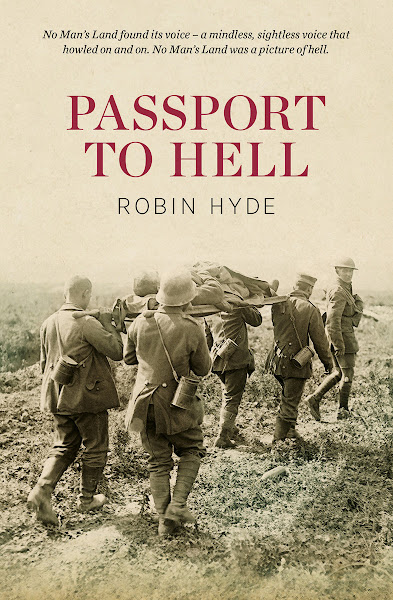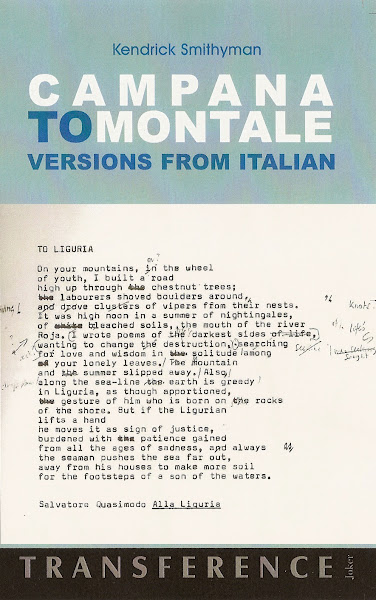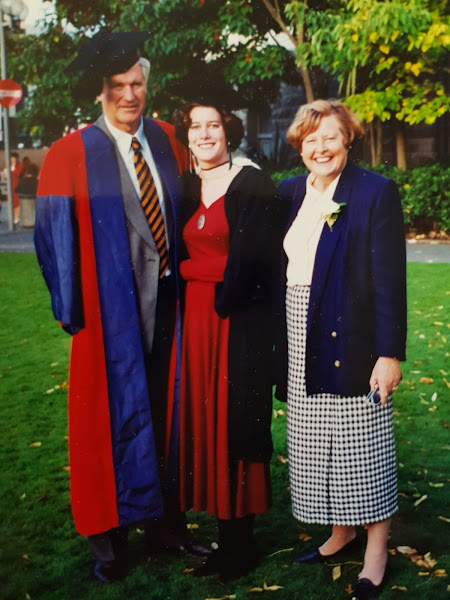 Mario Vargas Llosa: Tiempos recios (2019)
Mario Vargas Llosa: Tiempos recios (2019)Jorge Mario Pedro Vargas Llosa
1st Marquess of Vargas Llosa
(28 March 1936 – 13 April 2025)
I have books that deserve to outlive me, yes. Conversation in the Cathedral and The War of the End of the World. I worked very hard on those two books. But I don’t think about death.- Mario Vargas Llosa (20/2/2023)
Of course, the title of the penultimate novel published by Mario Vargas Llosa in his lifetime, Tiempos recios, doesn't really mean "interesting times." The translator of the English version, Adrian Nathan West, called it Harsh Times - and he might have chosen "rough", tough", or even "hard" times if he'd wanted to.
Charles Dickens's 1854 novel Hard Times is generally rendered in Spanish as Tiempos difíciles, so it's not clear whether or not Vargas Llosa was actually intending any allusion to it.
What I had in mind in choosing a title for my post was that ancient Chinese curse: "May you live in interesting times" - though unfortunately Wikipedia, with its usual thoroughness, has informed us that there's no known local source for this piece of nineteenth-century Chinoiserie:
The nearest related Chinese expression translates as "Better to be a dog in times of tranquility than a human in times of chaos" ... The expression originates from ... the 1627 short story collection by Feng Menglong, Stories to Awaken the World.Certainly Mario Vargas Llosa, the immensely distinguished, Nobel prize-winning Peruvian writer who died earlier this year, had no choice about living in interesting times.
I saw him once in person. He was billed to give the 1986 Neil Gunn International Fellowship lecture at Edinburgh University, where I was studying at the time. My plan was to write a Doctoral thesis on European versions of "South American-ness" along the lines of Edward Said's then newly minted text Orientalism (1978), so you can imagine that the chance to see one of the greatest living Latin American writers in action was far too important to miss.
It was - as always - a brilliant performance. His English, albeit a little accented, was fluent, and he had little difficulty in holding the attention of the far-from-polyglot audience. The talk itself appeared shortly afterwards, in slightly truncated form, in an issue of the Times Literary Supplement, and subsequently, in full, in John King's 1987 book Modern Latin American Fiction: A Survey. Then I found it again as chapter two of his 1990 book A Writer's Reality, based on a series of lectures given in 1988 at Syracuse University, New York.
I mention these details to emphasise just how adept he was in making the most of each piece of work he completed. What had seemed like a spontaneous response to the question of the Chronicles of Peru and their influence on subsequent fiction in Latin America was clearly a well-worn theme for Vargas Llosa, and he was keen to make the most of it by recycling it again and again.
At the time he was considered somewhat suspect in Britain for his open support of Margaret Thatcher. He adapted a good deal of her social attitudes and political rhetoric to local conditions in his campaign for President of Peru in 1990. Defeated by Alberto Fujimori, Vargas Llosa claimed that he'd only run in the first place because his country's "fragile democracy was on the point of collapse."
Subsequent events could be said to have proved him right, though, since Fujimori "carried out a self-coup against the Peruvian legislature and judiciary" early in his Presidential term:
Fujimori dissolved the Peruvian congress and supreme court, effectively making him a de facto dictator of Peru.Fujimori went on to draw up a new constitution, and was re-elected twice under its provisions in 1995 and 2000. However, his time in office:
was marked by severe authoritarian measures, excessive use of propaganda, entrenched political corruption, multiple cases of extrajudicial killings, and human rights violations ... Fujimori targeted members of Peru's indigenous community and subjected them to forced sterilizations.Interesting times, as I mentioned above.
An internationally celebrated writer such as Vargas Llosa could have been forgiven for retreating from the world of action and confining himself to his books after such a set-back as being trounced in the election. And he did live mainly in Madrid after 1990, though he "spent roughly three months of the year in Peru with his extended family."
The Latin-American idea of the writer as "tribuno" - tribune of the people - was strong in him, though. He'd already explored the world of mass media in a South Bank Show-style talk show called The Tower of Babel, produced for Peruvian TV in the early 1980s. Theatre, public lectures, visiting professorships, were all important parts of his life, as well as his complex engagement with the tragic history of his native land.
My own first attempt at an assessment of Vargas Llosa's work came in chapter 3 of the thesis I mentioned above, which eventually ended up with the imposing title "An Elusive Identity: Versions of South America in English Literature from Aphra Behn to the Present Day." I focussed on his sixth novel La guerra del fin del mundo [The War of the End of the World], comparing it to two previous accounts of the Canudos Campaign, a bizarre late nineteenth-century conflict between "civilisation" (in the form of the Brazilian government) and "backwardness" (in the form of an obscure millenarian religious sect) in the sertão, the primitive north-eastern backlands of Brazil.
The first account, Euclides da Cunha’s Os Sertões [Rebellion in the Backlands], is a kind of sociologically infused history of the confused mentality of the Conselheiristas - as the followers of the home-grown prophet Antonio Conselheiro had come to be called. It's a Brazilian classic, and a major work of world literature.
The second, R. B. Cunninghame Graham's A Brazilian Mystic: Being the Life and Miracles of Antonio Conselheiro, is a more conventional history of the event, interesting mainly for the personality of its author, a Scottish writer and traveller - mainly in Latin America - who was also among the founders of both the Scottish Labour Party (1888) and the Scottish Nationalist Party (1928).
The Canudos campaign meant very different things to these three writers: the Brazilian journalist, the Scottish historian and travel writer, and the Peruvian novelist. But it meant different things in their three separate eras, too. Da Cunha, in the late nineteenth century, felt despair at the seemingly bottomless ignorance and backwardness of his provincial countrymen; Cunninghame Graham, in the 1920s, saw it as yet another example of colonial oppression and indiscriminate violence; and as for Vargas Llosa in the early 1980s ... what exactly did he think about it?
None of his previous novels had strayed far from Peru - not only that, but the Peru of the 1950s, of his early manhood, as perfect a mirror for his larger thoughts about men and the world they inhabit (or so it seemed at the time) as Faulkner's Yoknapatawpha County had been for the elegist of the American South.
It's interesting to revisit the rather convoluted way in which I tried to approach this question in my own thesis in the late 1980s:
Mario Vargas Llosa's book La guerra del fin del mundo ... has many endings – to match its many narrative streams – and these are perhaps better dealt with in summary than in quotation. The actual ending comes as the culmination of an argument between a local Bahían Colonel and the gaucho lieutenant Maranhão who has been acting as unofficial executioner (by decapitation) of the prisoners. After the Colonel has humiliated the lieutenant by slapping his face and urinating on him, one of the woman prisoners (who has observed this act of revenge) catches hold of him and gives him the answer to the question he has been asking: where is João Abade, the military commander of the rebels?Or, as he puts it elsewhere:"He got away, then?"One could see this as Vargas Llosa's determination not to end in despair, but rather with a sense of victory of some sort – however equivocal. The main characters of the novel have already been dealt with, in the fashion of a nineteenth-century novel: the 'nearsighted journalist' (who one feels is some kind of analogue ... to Euclides da Cunha, one of the dedicatees of Vargas Llosa's book) has found happiness with Jurema, whom he met in Canudos; 'Galileo Gall', the Scottish revolutionary and phrenologist (... perhaps ... suggested in part by R. B, Cunninghame Graham) has died precisely because of his abuse of love, with the 'fateful femininity’ Jurema; and, finally, the Baron de Canabrava, the éminence grise of Bahían politics, has succeeded in making love again, thus restoring his wife and himself to the spiritual harmony they had lost in the siege. It sounds a wild farrago, but it all builds up to the single unified (avowedly authorial) conclusion to be drawn from the tale. As he himself has said, this is something new in his work:
The little old woman shakes her head again. encircled by the eyes of the women prisoners.
"Archangels took him up to heaven," she says, clacking her tongue. "I saw them."Because of the type of problem faced by the various characters. I have had to think in terms of generalized concepts – something which I have never done before while writing a novel, because it is a kind of thinking which tends to create obstacles, a novel being (for me, at any rate) a fundamentally concrete world of experience.What this conclusion is defies simple expression – but it seems, essentially, to set against the 'world-historical' cataclysm of Canudos the human values and human scale of the lives and mutual affections of the various characters. In essence, then, it is an attempt to draw from the particularities of the Canudos campaign 'ciertas ideas generales' [certain general ideas].
"Don't you see?" the nearsighted journalist said, breathing as though he were exhausted from some tremendous physical effort. "Canudos isn't a story: it's a tree of stories."
One of the mnemonic devices I've evolved over the years for turning off the tap of the monologue in my head when I'm trying to get to sleep is to recite lists of tricky - but memorisable - phenomena. It started off with the reigns of the kings and queens of England, then moved on to the chronology of the American presidents. When I got bored with those, I switched to the dates of Charles Dicken's novels - then ditto for Joseph Conrad, George Eliot, Thomas Hardy, William Faulkner, and ... Mario Vargas Llosa.
Vargas Llosa's 21 works of fiction seem to fall naturally into threes - or at any rate that's the easiest way for me to remember them when I'm lying awake at night.
Books I own are marked in bold:
- La ciudad y los perros [The City and the Dogs] (1962)
- La ciudad y los perros. 1962. Biblioteca de Bolsillo. Barcelona: Editorial Seix Barral, S. A., 1988.
- The Time of the Hero. 1962. Trans. Lysander Kemp. 1966. Picador. London: Pan Books Ltd., 1986.
- La casa verde [The Green House] (1965)
- La casa verde. 1965. Biblioteca Breve. Barcelona: Editorial Seix Barral, S. A., 1983.
- The Green House. 1965. Trans. Gregory Rabassa. 1968. Picador. London: Pan Books Ltd., 1986.
- Conversación en la Catedral [Conversation in the Cathedral] (1969)
- Conversación en La Catedral. 1969. Nueva Narrativa Hispánica. Barcelona: Editorial Seix Barral, S. A., 1979.
- Conversation in the Cathedral. 1969. Trans. Gregory Rabassa. 1975. London: Faber, 1993.
- Pantaleón y las visitadoras [Pantaleón and the Special Service] (1973)
- Pantaleón y las visitadoras. 1973. Biblioteca de Bolsillo. Barcelona: Editorial Seix Barral, S. A., 1989.
- Captain Pantoja and the Special Service. 1973. Trans. Gregory Kolovakos & Ronald Christ. 1978. London: Faber, 1987.
- La tía Julia y el escribidor [Aunt Julia and the Scriptwriter] (1977)
- La tía Julia y el escribidor. 1977. Biblioteca de Bolsillo. Barcelona: Editorial Seix Barral, S. A., 1986.
- Aunt Julia and the Scriptwriter. 1977. Trans. Helen R. Lane. 1982. Picador. London: Pan Books Ltd., 1984.
- La guerra del fin del mundo [The War of the End of the World] (1981)
- La guerra del fin del mundo. Biblioteca Breve. Barcelona: Editorial Seix Barral, S. A., 1981.
- The War of the End of the World. 1981. Trans. Helen R. Lane. 1984. London: Faber, 1986.
- Historia de Mayta [The Story of Mayta] (1984)
- The Real Life of Alejandro Mayta. 1984. Trans. Alfred MacAdam. 1986. London: Faber, 1987.
- ¿Quién mató a Palomino Molero? [Who Killed Palomino Molero?] (1986)
- ¿Quién mató a Palomino Molero? 1986. Biblioteca Breve. Barcelona: Editorial Seix Barral, S. A., 1988.
- Who Killed Palomino Molero? 1986. Trans. Alfred MacAdam. 1987. London: Faber, 1989.
- El hablador [The Storyteller] (1987)
- El hablador. Biblioteca Breve. Barcelona: Editorial Seix Barral, S. A., 1987.
- The Storyteller. 1987. Trans. Helen Lane. 1989. London: Faber, 1990.
- Elogio de la madrastra [In Praise of the Stepmother] (1988)
- Elogio de la madrastra. La sonrisa vertical: Colección de Erotica dirigada por Luis G. Berlanga. Barcelona: Tusquet Editores, S. A., 1988.
- In Praise of the Stepmother. 1988. Trans. Helen Lane. 1990. London: Faber, 1992.
- Lituma en los Andes [Lituma in the Andes] (1993)
- Death in the Andes. 1993. Trans. Edith Grossman. 1996. London: Faber, 1997.
- Los cuadernos de don Rigoberto [The Notebooks of Don Rigoberto] (1997)
- The Notebooks of Don Rigoberto. 1997. Trans. Edith Grossman. 1998. London: Faber, 1999.
- La fiesta del chivo [The Feast of the Goat] (2000)
- The Feast of the Goat. 2000. Trans. Edith Grossman. 2002. London: Faber, 2003.
- El paraíso en la otra esquina [Paradise in the other corner] (2003)
- The Way to Paradise. 2003. Trans. Natasha Wimmer. London: Faber, 2004.
- Travesuras de la niña mala [Doings of the Bad Girl] (2006)
- The Bad Girl: A Novel. 2006. Trans. Edith Grossman. New York: Farrar, Straus and Giroux, 2007.
- El sueño del celta [The Dream of the Celt] (2010)
- El sueño del celta. 2010. Alfaguara. México: Santillana Ediciones Generales, S. A., 2010.
- The Dream of the Celt. 2010. Trans. Edith Grossman. London: Faber, 2012.
- El héroe discreto [The Discreet Hero] (2013)
- The Discreet Hero. 2013. Trans. Edith Grossman. London: Faber, 2015.
- Cinco esquinas [Five Corners] (2016)
- The Neighbourhood. 2016. Trans. Edith Grossman. London: Faber, 2018.
- Tiempos recios [Harsh Times] (2019)
- Harsh Times. 2019. Trans. Adrian Nathan West. London: Faber, 2021.
- Le dedico mi silencio [I dedicate my silence to you] (2023)
- Le dedico mi silencio. Alfaguara. USA: penguinlibros, 2023.
- Los jefes (1959) / Los cachorros [The bosses / The cubs] (1967)
- Los jefes / Los cachorros. 1959 & 1967. Biblioteca Breve. Barcelona: Editorial Seix Barral, S. A., 1988.
- The Cubs and Other Stories. 1965 & 1967. Trans. Gregory Kolovakos & Ronald Christ. 1979. London: Faber, 1991.
*
These first three novels definitely form a group. In a previous post on the "Boom" generation of Latin American novelists, I said of them:
Vargas Llosa's first three novels are fantastically dense, almost Faulknerian studies of the lifestyles - and moral compromises - of Peruvian society and politics in the 1950s. They're linguistically inventive, stylistically innovative, and powerfully structured. La ciudad y los perros makes a kind of parable out of the author's own schooldays in Lima. La casa verde - probably the most enduring of the three - centres on the doings in a certain brothel in Amazonia; whereas Conversación en la Catedral records a single conversation in a bar, with an almost infinite set of ramifications branching out from each line of dialogue.Together, they probably form his major claim on posterity.
*
In his 1990 Paris Review interview, Vargas Llosa said:
I used to be “allergic” to humor because I thought, very naively, that serious literature never smiled; that humor could be very dangerous if I wanted to broach serious social, political, or cultural problems in my novels. I thought it would make my stories seem superficial and give my reader the impression that they were nothing more than light entertainment ... But one day, I discovered that in order to effect a certain experience of life in literature, humor could be a very precious tool. That happened with Pantaleon and the Special Service. From then on, I was very conscious of humor as a great treasure, a basic element of life and therefore of literature.It wasn't just humour that he discovered at the beginning of the 1970s, though, it was the whole burgeoning world of postmodern intertextuality. His next three novels are still among his most beloved and widely read. As I said of them in an earlier post:
No more ponderous studies of colonial corruption and violence - instead, he decided to approach these themes through humour and linguistic absurdity. Pantaleón y las visitadoras, the first of these novels, tells the story of a "special service" of prostitutes provided to servicemen in Amazonia, poorly concealed under a cloak of bureaucratic verbiage and officialese. It's a very funny novel, which reprises the themes of La casa verde in a completely different way.I've already commented above on the equally multi-layered War of the End of the World.
He followed it up with an even bolder leap into the unknown: La tía Julia y el escribidor (1977) retold the events of his own early life, with the admixture of an imaginary hack serial-writer, whose multiple stories were all starting to fold in on each other in an increasingly chaotic blizzard of clichés. This remains his most famous and successful novel, having even survived a dreadfully cack-handed Hollywood adaptation with Barbara Hershey and Peter Falk. It revisits not only the world of his first novel The Time of the Hero, but also that of the early stories collected in Los jefes & los cachorros [The Cubs] (1959 / 1967).
*
The next period of Vargas Llosa's writing life is rather more difficult to characterise:
There were political satires, such as Historia de Mayta [The Real Life of Alejandro Mayta] (1984) and Los cuadernos de don Rigoberto [The Notebooks of Don Rigoberto] (1997). There were detective novels, such as ¿Quién mató a Palomino Molero? [Who Killed Palomino Molero?] (1986) and its sequel Lituma en los Andes [Death in the Andes] (1993). There were risqué sex comedies, such as Elogio de la madrastra [In Praise of the Stepmother] (1988), and Travesuras de la niña mala [The Bad Girl] (2006).Of the three novels listed directly above, my own pick would definitely be El hablador, though I described it as "more of a great idea for a novel than a great novel" in my earlier post.
Interestingly enough, much the same approach, interspersing Indian folktales with the contemporary story of despoliation of the Amazon, was taken by British playwright Christopher Hampton in his at-least-equally-accomplished 1970s play Savages.¿Quién mató a Palomino Molero? is a good roman policier, but not really much more than that. The Historia de Mayta suffers from too much topical satire at the expense of hopeless left-wing ideologues. The events it was based on were real enough, but somehow Vargas Llosa hasn't added anything very substantial to them. Perhaps he was just stretched too thin at this point in his life to concentrate fully on his vocation as a novelist.
*
I described the two novels In Praise of the Stepmother and its sequel The Notebooks of Don Rigoberto as "quasi-soft porn" in an earlier post on Vargas Llosa's later work.
Certainly it was a surprising development in the work of one of the most senior writers in the Latin American canon. Opinions differ on the effectiveness of the result. What might have seen as par for the course in a comparably eminent French writer somehow seemed to shock people more when it came from so "serious" an author.
Lituma en los Andes is a grim detective novel, a sequel to ¿Quién mató a Palomino Molero?, but with far more heft and atmosphere. It provides another fascinating window into the strange world of Vargas Llosa's Peru.
*
"The Feast of the Goat came after such a long dry spell that most critics had already written him off," is how I put it in a previous post called "Novelists in their 80s."
The Way to Paradise (like its successor The Dream of the Celt) is an interesting enough ficto-biography. Travesuras de la niña mala is - we're told - Vargas Llosa's attempt to transpose his most-admired novel, Flaubert's Madame Bovary, to the world of contemporary Peru. Neither of the last two is much more than a footnote to his earlier triumphs, however.
But The Feast of the Goat! I couldn't really believe it when I first read it. I described it then as:
a terrifyingly visceral piece of work, fully comparable to such early works as La casa verde or Conversación en la Catedral. More to the point, it's a major contribution to that strange literary subgenre called the Latin American dictator novel.If you'd like to see more examples of these novels, I've already tried to list most of the major titles - from Asturias' El Señor Presidente to Roa Bastos' I the Supreme and García Márquez' Autumn of the Patriarch - in a previous post.
There's not a lot of point in writing more about La fiesta del chivo: it demands to be read. I don't think anyone had anticipated that the old man still had it in him.
*
In an earlier post, quoted above, I tried to sum up the effect of one of Vargas Llosa's later novels:
The Discreet Hero is not among his masterworks ... but it's still a fascinating read for the fans.The Dream of the Celt, as I mentioned above, is a ficto-biography of the Irish social activist and revolutionary Roger Casement. It makes a rather unhappy attempt to write off Casement's notorious "Black Diaries", detailing his homosexual activities, as a series of fantasies rather than a factual record, but is otherwise quite persuasive in its reconstruction of his world: particularly his investigations of the appallingly brutal turn-of-the-century rubber plantations of the Amazon.
Those of you who've read Aunt Julia and the Scriptwriter will recall how the latter's scripts start to fold in on themselves, with characters appearing in the wrong contexts and contaminating the plotlines with unexpected interventions. So many of Vargas Llosa's own old characters - Lituma, Don Rigoberto, the 'Stepmother' herself - turn up in this novel that one has, at times, the odd feeling that the whole thing is set in Vargas-Llosa-land rather than any kind of recognisable Peru.
His obsession with the provincial Peru of the 1950s, its constant recurrence in its work, is supplanted here by an rather more 'contemporary' Lima and Piura. The characters all seem to live in the past, however: his past, Vargas Llosa's, rather more than their own.
The novel is neatly plotted and full of unexpected treats - though perhaps more for readers familiar with his work than any newcomers. The playfulness may seem a little forced at times, the virtuosity a bit tired, but there's no doubt that Vargas Llosa at his worst ... is still superior to most other novelists at their best.
Cinco esquinas, too, met with a rather mixed press. Reviewers' opinions ranged from: "a colorful but confusing and ultimately disappointing work by a great writer" to an "audacious and skillful" novel which "pulses along with a zest and cunning not commonly found among octogenarian Nobel laureates."
The translation, too, has received brickbats as well as bouquets, being described on the one hand as "punchily translated by the ever-excellent Edith Grossman", and on the other blamed for "tripping up" the reading experience.
As the saying goes: You pays your money and you takes your choice.
*
I've added Vargas Llosa's two early collections of short stories to the end of this list as a kind of coda to his 65 years of publishing fiction. Los jefes - winner of his first literary award, the Leopoldo Alas Prize - and the novella Los cachorros both inhabit the world of Peru's feral street kids. He may have ended up as one of the grand old men of world letters, but he began as a young punk, and he was anxious not to let anyone forget it.
Peru in that decade, the 1950s, when he was in his teens, remained his spiritual centre for the rest of his life. Some of his greatest novels - The War of the End of the World, The Feast of the Goat - were set elsewhere in Latin America, but an overwhelming number of them were situated right there at home, in the narrow streets and broad mountains he'd known since childhood.
His last, Le dedico mi silencio [I gift you my silence], not yet translated into English, is no exception: it is, by all accounts, a "love letter to Peruvian popular music." As the TLS reviewer said at the time:
If this novel proves to be Vargas Llosa’s swan song, then it is hard to imagine a better one. It deploys a subtle, self-deprecating humour, as though nothing about it were really serious, when much clearly is. Toño is especially dedicated to the Peruvian vals, or waltz, a dance that bears little resemblance to its Viennese namesake and which (he tells us) emerged spontaneously from Lima’s sordid alleyways. Nobody invented the vals, everybody loves it, and it has the potential, or so Toño believes, to bring Peruvians together at a time when the country is being torn apart by Shining Path guerrillas.Well, Mario Vargas Llosa is dead now, and with him dies the last link to that miraculous "Boom" generation. Their achievements are part of literary history now; their complex, at times contradictory, political stands have not resulted in the liberation from foreign domination they sought. They did, however, succeed in reverse-colonising the literature of the nations who had most oppressed them: surely a worthy enough feat for any set of writers?
When Vargas Llosa was asked, in the 1990 Paris Review interview I quoted from above, whom he most admired among his contemporaries, the answer was simple: Jorge Luis Borges.
... if I were forced to choose one name, I would have to say Borges, because the world he creates seems to me to be absolutely original. Aside from his enormous originality, he is also endowed with a tremendous imagination and culture that are expressly his own. And then of course there is the language of Borges, which in a sense broke with our tradition and opened a new one. Spanish is a language that tends toward exuberance, proliferation, profusion. Our great writers have all been prolix ... Borges is the opposite — all concision, economy, and precision. He is the only writer in the Spanish language who has almost as many ideas as he has words. He’s one of the great writers of our time.The admiration was not mutual, however:
The last time I saw him was at his house in Buenos Aires; I interviewed him for a television show I had in Peru and I got the impression he resented some of the questions I asked him. Strangely, he got mad because, after the interview — during which, of course, I was extremely attentive, not only because of the admiration I felt for him but also because of the great affection I had for the charming and fragile man that he was — I said I was surprised by the modesty of his house, which had peeling walls and leaks in the roof. This apparently deeply offended him. I saw him once more after that and he was extremely distant ... The only thing that might have hurt him is what I have just related, because otherwise I have never done anything but praise him. I don’t think he read my books. According to him, he never read a single living writer after he turned forty, just read and reread the same books ... But he’s a writer I very much admire."I don't think he read my books." It doesn't matter how great your fame and achievements may be, there's always something missing. Borges didn't read Vargas Llosa - or at least claimed not to - so he never knew just how he would have stacked up in that extraordinary blind genius's world.
Nos unimos al dolor de todos los peruanos y expresamos nuestro sentido pesar por el fallecimiento de Mario Vargas Llosa, Premio Nobel de Literatura.
Mario Vargas Llosa deja una huella imborrable en el mundo de la literatura, y como peruanos, nos enorgullece que sea uno de los principales referentes para los novelistas del Perú y el mundo.
Descansa en paz, Mario Vargas Llosa.
We join in the grief of all Peruvians and express our deepest condolences for the passing of Mario Vargas Llosa, Nobel Prize winner in Literature.
Mario Vargas Llosa left an indelible mark on the world of literature, and as Peruvians, we are proud that he is one of the leading examples for novelists in Peru and around the world.
Rest in peace, Mario Vargas Llosa.
•









